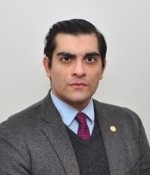A Comparative Analysis
FEATURED PAPER
By Prof. Dr. M. F. HARAKE
CEREGE Research Laboratory
University of Poitiers
Poitiers, France
Abstract
This paper presents a detailed and exhaustive analysis of the project management processes used by four of the most influential international financial institutions: the World Bank, the International Monetary Fund (IMF), the European Central Bank (ECB), and the Organization for Economic Co-operation and Development (OECD). While each institution operates under different mandates—ranging from the World Bank’s focus on development projects, the IMF’s emphasis on macroeconomic programming, the ECB’s management of financial stability and banking supervision, to the OECD’s coordination of policy research and advisory roles—they all share a common goal of fostering global economic stability and development. Despite their distinct project management frameworks shaped by their organizational structures and strategic objectives, these institutions share several similarities in their approaches. This paper explores their unique methodologies, offering a comprehensive understanding of their roles in global financial governance and the impact of their projects on the global economy. It also provides a comparative analysis, highlighting the similarities and differences in their approaches, and ultimately proposes a Common Project Management Model (CPMM) that integrates best practices from all institutions, ensuring a unified approach to managing high-impact global initiatives effectively.
- Introduction
1.1 Introduction to International Financial Institutions’ Project Management Processes
International financial institutions (IFIs) such as the World Bank, International Monetary Fund (IMF), European Central Bank (ECB), and Organization for Economic Co-operation and Development (OECD) are central to shaping global economic policy and promoting financial stability across countries. These institutions provide critical financial resources, policy advice, and technical assistance to both developed and developing countries, thereby playing pivotal roles in global economic governance (IMF, n.d.; World Bank, n.d.). While these organizations share the common goal of fostering global economic stability and development, they each have distinct mandates and operational focuses that shape their approach to project management.

Chart 01. Roles & Focus Area of International Financial Institutions
1.2 Distinct Mandates and Operational Focus
Each of these institutions has a unique approach to managing projects, largely influenced by their specific mandates and operational scopes. The World Bank is a global development institution that primarily focuses on poverty alleviation, infrastructure development, and economic growth in the developing world. Its projects are often directed toward building essential infrastructure like schools, roads, and hospitals, as well as addressing pressing challenges such as climate change, education, and health crises (World Bank, n.d.). Through its comprehensive lending programs and technical expertise, the World Bank helps nations design and implement sustainable development initiatives tailored to their unique economic and social contexts.
More…
To read entire paper, click here
How to cite this paper: Harake, M. F. (2024). Project Management Processes in Major International Financial Institutions: A Comparative Analysis. PM World Journal, Vol. XIII, Issue XI, December. Available online at https://pmworldlibrary.net/wp-content/uploads/2024/12/pmwj147-Dec2024-Harake-Project-Management-Processes-in-Major-International-Financial-Institutions.pdf
About the Author

Prof. Dr. M. F. HARAKE
Poitiers, France
![]()
Prof. Dr. M. F. HARAKE is a management Professor based in France. He is currently affiliated with CEREGE Research Laboratory at the University of Poitiers (France), and a visiting research fellow at CABMR Research Center (Paris – France). He is also an Honorary Academic Advisor and Research Scholar for the PM Library (Texas – USA). His research interests include Post-Conflict Public Management, Crisis and Urgent Operations Management, Humanitarian Logistics, and Project Management in Unstable Environments.
He can be contacted at mohamed.fadl.harake@univ-poitiers.fr
To view other works by Prof. Harake, visit his author showcase in the PM World Library at https://pmworldlibrary.net/authors/mohamad-fadl-harake/









